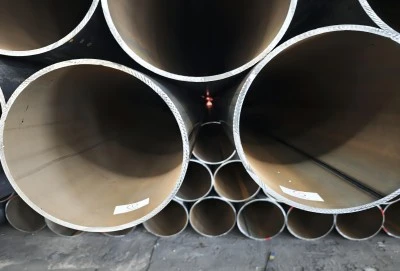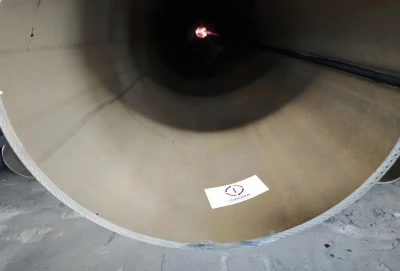The pressure bearing capacity of API 5L ERW (Electric Resistance Welded) pipes plays a crucial role in determining their suitability for various oil and gas applications. This fundamental characteristic influences pipeline design, safety considerations, and operational parameters throughout the energy transportation infrastructure. Understanding the factors that affect pressure bearing capacity enables engineers and operators to make informed decisions regarding pipe selection and system design. The interplay of multiple variables determines the ultimate pressure resistance of these essential components, making it vital to comprehend how each factor contributes to overall performance. This comprehensive analysis explores the key elements that influence the pressure bearing capacity of API 5L ERW pipes.
|
|
|
Pipe Grade
The grade of API 5L ERW pipes serves as a primary determinant of their pressure bearing capacity. Each grade designation corresponds to specific mechanical properties, particularly yield strength and tensile strength.
The API 5L specification includes multiple grades, ranging from X42 through X80, with the number indicating the minimum yield strength in thousands of pounds per square inch (psi). The metallurgical composition of higher-grade pipes incorporates carefully controlled alloying elements and processing parameters to achieve enhanced strength characteristics.
X70 and X80 grades utilize advanced steel manufacturing techniques, including precise control of carbon equivalent values and microalloying elements such as niobium, vanadium, and titanium. These elements contribute to grain refinement and precipitation strengthening, resulting in superior mechanical properties.
Heat treatment processes play a significant role in achieving the desired strength levels for each grade. Normalized or quenched and tempered conditions may be specified depending on the grade and application requirements. The heat treatment cycle influences the microstructure development, which directly affects the pipe's ability to withstand internal pressure loads. Modern steel manufacturing techniques enable the production of high-grade pipes while maintaining excellent toughness and weldability. The balance between strength and ductility becomes increasingly critical in higher grades, requiring careful control of manufacturing parameters to ensure optimal performance under pressure loading conditions.
Pipe Wall Thickness
Wall thickness represents a fundamental parameter in determining the pressure bearing capacity of API 5L ERW pipes. The relationship between wall thickness and pressure resistance follows established engineering principles, with thicker walls providing greater resistance to internal pressure loads.
Schedule numbers, such as SCH40 and SCH80, standardize wall thickness specifications across different pipe sizes. The selection of appropriate wall thickness involves consideration of multiple factors beyond simple pressure containment. These include allowances for corrosion, erosion, and mechanical damage that may occur during the pipe's service life.
Engineers must account for these factors when specifying wall thickness to ensure long-term reliability and safety. Advanced computational methods, including finite element analysis, assist in optimizing wall thickness selections for specific applications. These tools enable detailed stress analysis under various loading conditions, helping engineers identify potential areas of concern and validate design decisions. The analysis considers both steady-state operating conditions and transient events that may impose additional stresses on the pipeline system.
Manufacturing tolerances for wall thickness must comply with API 5L requirements, ensuring consistent pressure bearing capacity throughout the pipe length. Regular measurements and inspections during production verify compliance with specified tolerances. The relationship between wall thickness variations and pressure capacity follows established engineering principles, allowing for accurate prediction of performance characteristics.
Pipe Diameter
The diameter of API 5L ERW pipes significantly influences their pressure bearing capacity through its relationship with hoop stress development. Larger diameter pipes experience greater circumferential stresses under internal pressure, necessitating careful consideration of wall thickness requirements to maintain structural integrity. The diameter-to-thickness (D/t) ratio serves as a critical design parameter, influencing both pressure capacity and structural stability. Higher D/t ratios may require additional consideration of stability issues, including potential ovalization under pressure and external loads.
Engineers must carefully evaluate these factors when selecting pipe dimensions for specific applications. Modern pipeline design practices incorporate sophisticated analysis techniques to optimize diameter selection based on flow requirements while maintaining adequate pressure bearing capacity. Computational fluid dynamics (CFD) analysis helps predict flow characteristics and pressure distributions, enabling more efficient pipeline designs that balance hydraulic performance with structural requirements. Installation considerations also influence diameter selection, particularly in challenging terrain or offshore applications. Larger diameter pipes may require special handling procedures and equipment during installation, potentially affecting project logistics and costs. The relationship between diameter, wall thickness, and pressure capacity must be evaluated within the context of these practical constraints.
Welding Quality
The integrity of the welded seam in API 5L ERW pipes plays a crucial role in determining their pressure bearing capacity. The electric resistance welding process must maintain precise control of welding parameters to ensure consistent joint quality throughout the pipe length.
Modern manufacturing facilities employ advanced monitoring systems to track critical welding parameters in real-time. Weld zone properties, including hardness profiles and microstructural characteristics, must meet stringent requirements to ensure adequate pressure resistance.
The heat-affected zone (HAZ) requires particular attention, as its properties can differ from both the base material and the weld metal. Careful control of heating and cooling rates during welding helps optimize HAZ characteristics.
Non-destructive examination (NDE) techniques verify weld quality during production. These may include ultrasonic testing, radiographic inspection, and electromagnetic inspection methods. The combination of multiple inspection techniques provides comprehensive evaluation of weld integrity, helping ensure consistent pressure bearing capacity. Post-weld heat treatment may be specified for certain grades or applications to optimize weld zone properties. This process helps relieve residual stresses and achieve desired mechanical properties throughout the welded joint. Regular quality control testing, including burst tests and mechanical property evaluations, validates the pressure bearing capacity of welded pipes.
API 5L ERW Pipe For Sale
LONGMA GROUP demonstrates expertise in manufacturing API 5L ERW pipes that meet rigorous industry standards for pressure bearing capacity. Their product range encompasses both PSL1 and PSL2 specification levels, providing options for various application requirements. The manufacturing facilities incorporate modern equipment and control systems to ensure consistent product quality.
Quality management systems at LONGMA GROUP focus on maintaining strict control over factors affecting pressure bearing capacity. This includes careful material selection, precise manufacturing control, and comprehensive testing programs. The production process incorporates regular monitoring and documentation of critical parameters affecting pipe performance. Each production batch undergoes thorough inspection and testing to verify compliance with specified requirements. This includes dimensional checks, mechanical property testing, and non-destructive examination of welds. The quality control program ensures that delivered pipes meet or exceed customer expectations for pressure bearing capacity.
Customers interested in sourcing API 5L ERW pipes can reach LONGMA GROUP through info@longma-group.com. Technical support personnel can assist with material selection and specification development, ensuring optimal pipe selection for specific pressure requirements. The company maintains comprehensive documentation systems to support material traceability and quality verification throughout the supply chain. LONGMA GROUP's commitment to manufacturing excellence extends to continuous improvement in production processes and quality control methods. Regular reviews of manufacturing parameters and test results help identify opportunities for enhancement in product performance and consistency. This dedication to quality ensures reliable pressure bearing capacity in delivered products.














